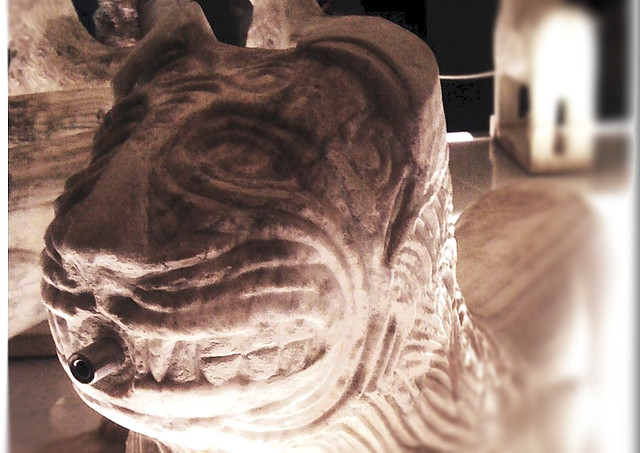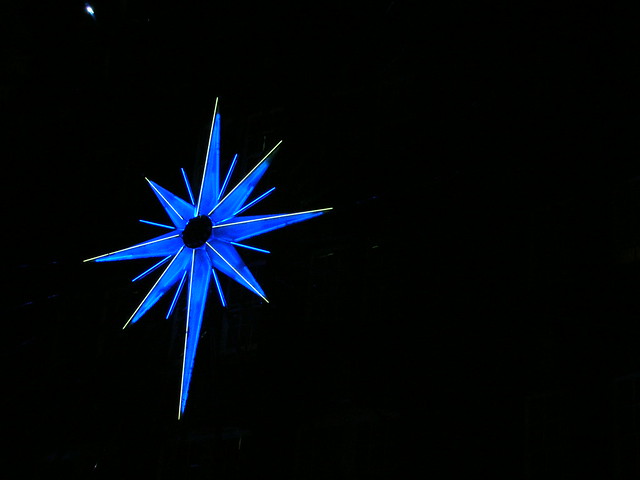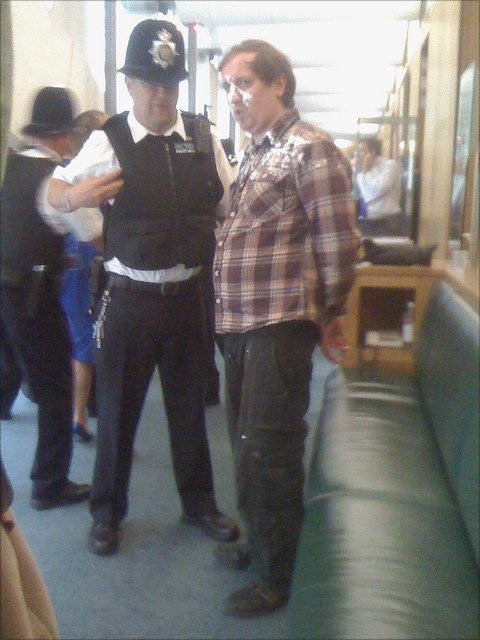Posts Tagged ‘journalism’
Everyman No 4,000 | Observer
18 June, 2023
I collaborated with Allan Scott, Colin Gumbrell and – via the archives – the other three setters of the Everyman crossword since 1945 (Alec Robins, Dorothy Taylor and of course Derrick Somerset Macnutt) on an anniversary puzzle.
- Observer profile
- Anniversary puzzle
- Everyman #1
- Image: Suki Dhanda/The Observer
John Dawson obituary | The Guardian
5 November, 2020Support for solvers | The Guardian
2 November, 2020Two new features in my Guardian column. Recommendations for remote activities, and a collaborative playlist of music recorded under current conditions:
Trump, double-negatives and politics | BBC News
23 July, 2018A quick piece for the BBC about double negatives:
It’s hard to understate how often we find ourselves using two negatives when we don’t mean to – in fact, this sentence begins with a common example
See also:
The Lion Sleeps Tonight | Financial Times
3 July, 2018A piece by me for the FT’s Life of a Song series on “The Lion Sleeps Tonight”:
Solomon Linda recorded the spine-chilling isiZulu-language ‘Mbube’ in Johannesburg in 1939. Some he improvised as the tapes rolled. And for those moments, the song belonged to Linda.
Then he was bought out for ten shillings by Eric Gallo, the Italian wideboy who owned the studio, and who now owned ‘Mbube’. Even when it became a local hit, Linda could have had no idea what he had given away.
I am indebted to Rian Malan’s collection of essays, and we are all indebted to his indefatigability.
Here’s a playlist of the music mentioned:
Stevie Wonder’s Another Star for BBC News
7 June, 2014A short-form piece for the Beeb on Stevie Wonder’s Another Star, the theme tune for the BBC’s World Cup coverage:
Another Star closes side four of Songs in the Key of Life – the very end of a four-album run in which Wonder relentlessly outdid himself. He had originally intended to follow his previous, Fulfillingness’s First Finale, with a sequel.
Fulfillingness’s Second Finale was to be a darker, socially conscious experience, but Wonder’s ambition overtook him, and he spent two years putting together a double album (with bonus single) instead.
No space this time for a collection of cover versions, so here they are.
With the Tokyo Philharmonic:
Salome De Bahia:
Caron Wheeler of Soul II Soul, Afrodiziak:
Kathy Sledge of Sister Sledge:
And, of course, with Nile Rodgers and Daft Punk:
Looking like a scraper site, DM? The Daily Mail flaunts its spam-a-like pages with content from… the BBC!
31 December, 2012
Jon Hamm and Daniel Radcliffe as Older Doctor and Young Doctor, both inspired by Mikhail Bulgakov’s experiences in a rural hospital
The Daily Mail’s TV & Showbiz pages include many non-stories which look uncomfortably like a dump of content the paper doesn’t own…
Mikhail Bulgakov is the Russian author of the original stories on which we based the mini-series A Young Doctor’s Notebook. I recently googled Bulgakov’s wife Yelena and came across a piece which begins:
This is the story of the Soviet authorities’ persecution of the Ukrainian writer Mikhail Bulgakov, as told through the diaries of Yelena, his third wife, and Bulgakov’s own letters.
The curious thing is that the link takes you to the Daily Mail, which isn’t the first site I associate with literary biography. And the page doesn’t read like a piece of journalism, exactly. Here’s how it looks:
It seems to be the programme note for a BBC Radio 4 drama from 2001. There’s no embedded audio, link or TX details; it’s not a review – just some contextless content. Which makes the Daily Mail look uncomfortably like a “scraper” site: those odd-looking, often illegal bits of the web which use other people’s property as padding around the real point of the pages, adverts:
Some scraper sites are created to make money by using advertising programs. In such cases, they are called Made For AdSense sites or MFAs. This derogatory term refers to websites that have no redeeming value except to lure visitors to the website for the sole purpose of clicking on advertisements.
When I accessed the Mail page which did well in search for Yelena Bulgakov, it had ads from Play, M&S, WeightWatchers, Ariel, Always and Google Ads. Perhaps it’s an anomaly, I thought. A one-off test page with some placeholder text which should have been deleted to avoid any risk of looking like the Mail was covertly bringing users to a page with content they don’t own to generate commercial revenue. I had a look around the TV & Showbiz section of the Mail and found a similar looking page:
And another one:
Again, lots of ads around both and in the second one, some information about other Radio 4 programmes. As it turned out, I found it difficult to think of a Radio 4 programme that hasn’t been surrounded by ads and made into a Daily Mail page.
Very odd. Someone had even added a picture to the Archers episode description, like with this documentary about Gandhi:
It’s a while since I worked at the BBC; perhaps these pages are part of a project where the Beeb has generously handed over its own content – or that of independent production companies – to help with the Daily Mail’s revenue streams, even while the Mail takes every opportunity to bash the Beeb. Perhaps there’s a reason none of these pages seems ever to have been linked to from the Mail’s front page. Perhaps it’s a good use of your licence fee. Who knows?
Other advertisers who find themselves next to BBC content include Marriott, Sky, Toyota, Dell, Lotto, Virgin, Nokia, Nationwide, Direct Line, Reiss, BA, Corsodyl, HSBC, JP Morgan, BT, Barclays and the Department for Business, Innovation and Skills. On all of them are Google Ads, the terms and conditions of which have a questionable relationship with the content.
Murdoch ‘Pie’ Attack: I Was There
20 July, 2011Above is an image of “Jonnie Marbles” getting handcuffed outside the Wilson Room in Parliament. Below are images of the rest of us in the room being ejected. Here’s why everyone there found the stunt infuriating:
- The queues had started over seven hours before the committee began. It was like the Royal Wedding, but – genuinely – with normal people. Oldies, supermarket employees, families – normal. And while it was a festive mood, it was also tense: the official line as to how many people would get into the room kept changing, and some people were certainly facing a wasted day. Questions popped about. Was space being cleared for the Dowler family? Had the tiny Wilson Room been chosen so as not to look like a show trial? Was Jemima Khan trying to hop in? At one point, we were told that the Doorkeepers were considering letting us sit on each other’s laps if we so fancied. Westminster reporters were heckling sketchwriters about their slim chance of making it in. So when we later found out that the front of the queue had been a gang with a bag full of shaving foam, “comedy” wasn’t the first word that sprang to mind. Nor was “activism”. “Shabby oaf” and “stupid tit” were some of the descriptions I did hear.
- The dynamic in the room was entrancing – until it was cut off. Murdoch Jnr’s longer spiels were worthy of your favourite guest on Just A Minute – circumscribed vocabulary expressed with eerie diction, fending off attempts at interruption. “I’m happy to answer that,” indeed. As for Murdoch Snr, each time he rhythmically rapped his fin on the desk, the Wilson Room started by going instantly silent and then seemed to get more so. It wasn’t possible to tell whether this was deference on the part of the MPs, or anticipation of a juicy detail – but it was spell-binding. Knowing that the Murdochs, as non-subjects, were not compelled to attend meant that the ultimate authority never seemed to settle, though Headmaster Whittingdale had the lion’s share. Some of the questions felt a little random, but might have been leading somewhere that’ll become apparent in the months to come; we simply couldn’t tell. The experience was like those Richard Norton-Taylor inquest-recreation-play things, except real. Except – again – sometimes it didn’t seem real. There was Rupert Murdoch! In a room! Boom! Gone! For one afternoon, a functional room filled largely with shirted men was the greatest show on Earth. I swear I never once heard anyone whisper “You know what they should send in? Some clowns.”
- Which brings us to another shared source of exasperation. Moguls don’t tend to hang out in public space. This was like seeing Thor in a Job Centre. You don’t have to be fanciful or grandiose to feel proud that This Is How We (Eventually) Do Things – after all the tales of deceit and connivance, here was an open, public event, open to the public, where the public would show it was decent and fair. The public wasn’t supposed to be baffling, threatening or in any sense dickish. People were surprised that they were allowed to nip to the loo, drink fizzy water and chew gum. Hey – The Authorities don’t think we need to be treated like infants! Hmm.
Then, at just after ten to five, it was all over. An amazing, inspiring event ceased to exist as a piece of public property. I’d even missed the affray itself, because I was incredibly preoccupied with another bag-holder behind me, who had also stood up and seemed to be working his way round from the other side. Next we shuffled around as per the coppers’ yelled instructions, before eventually and sullenly trudging down the corridor to join Jemima Khan in the Boothroyd Room, cursing Jonnie Marbles. The committee was on the screens there, but what’s the point of watching something on TV if you have to remain decently dressed and you can’t even nip off to get a sandwich during another of Murdoch Jnr’s sixty-second dashes?
Finally, the speculation started again, including the inventive theory that News Corp had put the jackass up to it. “Because,” a punter noted, “that was the best thing to happen to Rupert Murdoch all day.”



















